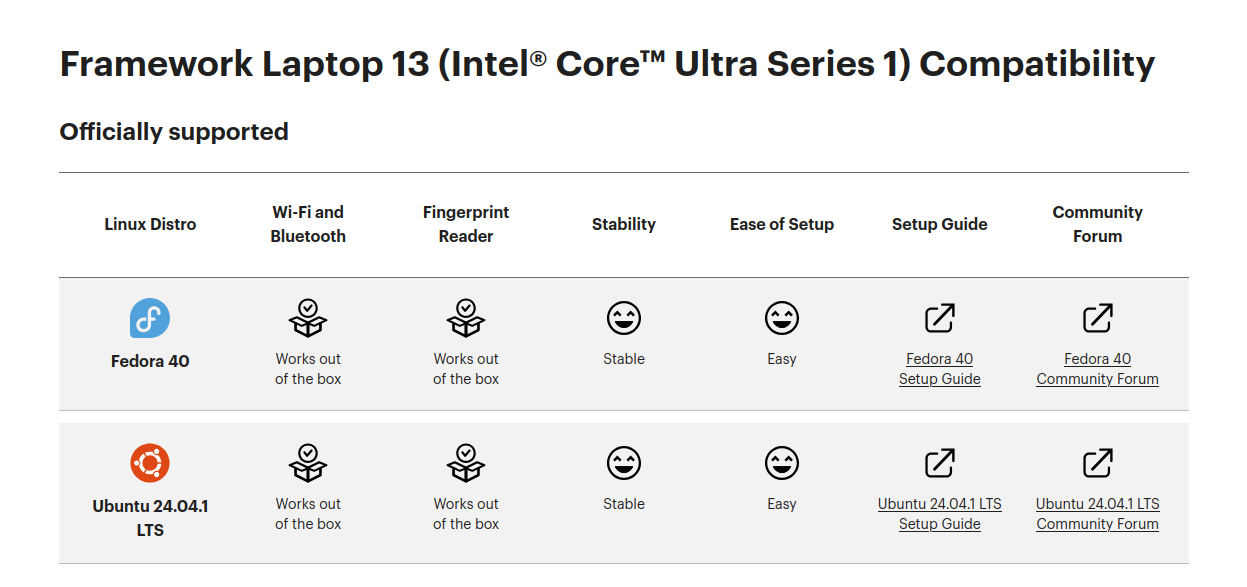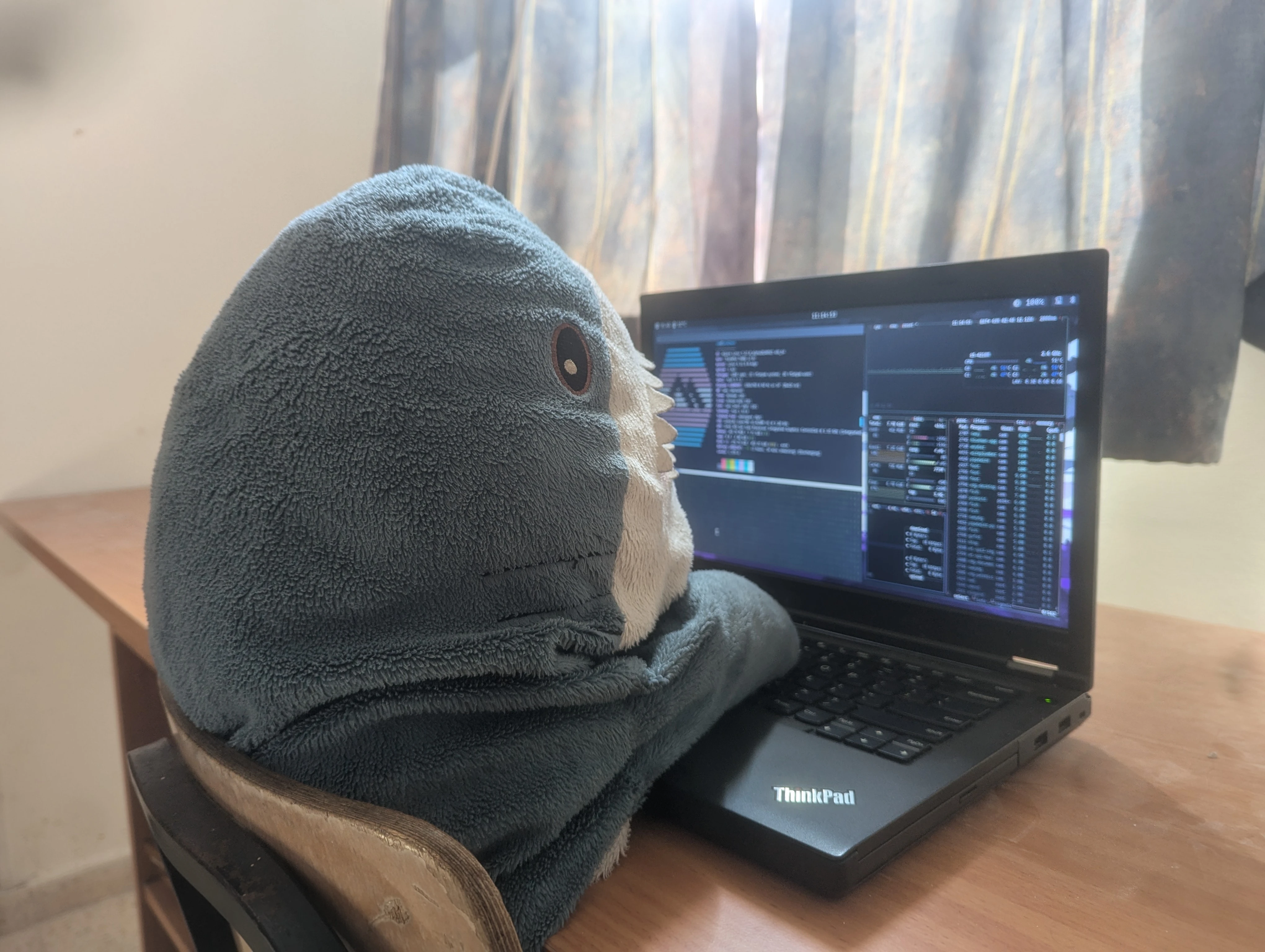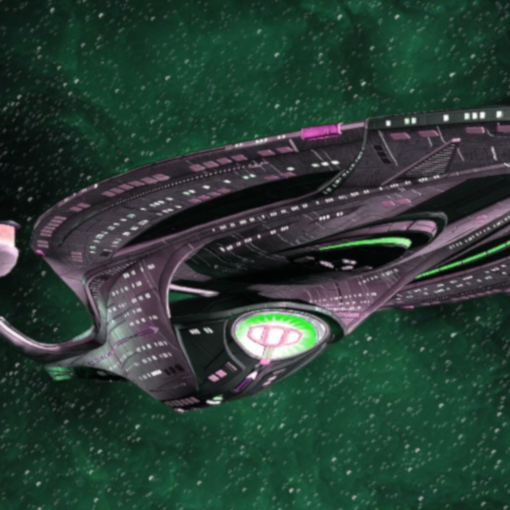TLDR:
Windows 11 v24H2 and beyond will have Recall installed on every system. Attempting to remove Recall will now break some file explorer features such as tabs.
YT Video (5min)
This is absolutely insane
My condolences to all Windows 11 users.It’s becoming common knowledge that:
- It’s not a matter of if but when will xyz service/application be breached and what are the potential damages it could do to me and others?
"I assume every online service is not if; it’s when is it going to be breached? Right? So I operate under that assumption, that everything is going to be breached at some point. And so that’s why Recall was so scary to me where it’s like, I don’t care how secure they say it is, like you look at Spectre and Meltdown no one thought these things were going to affect millions of CPUs and here we are, right?
- Steve from Gamers Nexus
[Level1Techs] Microsoft Is KILLING Windows | ft. Steve @GamersNexus
I guess I just have to keep Windows 10 with a custom group policy that disables all updates either forever or until I learn Linux.
Linux gaming is getting to the point that I could consider the switch, but I hear scary stories about Nvidia drivers.
I had no issues with Nvidia. PopOs has support for Nvidia on install…I used it and it worked
I had minor issues when I first installed, but I worked them all out.
Install and give it a week. Seven days. If you can’t get it all figured out by then head back to windows. If you can figure it out, you probably won’t go back.
I have a GTX 1080 and I’ve been gaming on Linux for over a year now. No issues. Only thing that you cant do is some of the new generation window managers (wayland) but even that is working well in the nvidia drivers that arent on stable yet. In any case, the previous generations window managers work great and if wayland doesnt work properly for you, you can just as easily do without it.
Point is, its worth it to make the switch. I set my partner up with Linux Mint when their machine didnt qualify for windows updates anymore and they’ve had no problems, games and all. And they would never touch the command line.
Would recommend
Yep same with PoPOS. Great little distro. It’s been my daily driver for years now.
hey GTX1080 user! Have you been able to get any games running with RTX? I picked mine up used a while back, and I kinda stopped PC gaming ages ago, but it’d be nice to use these features if I could. I haven’t been able to get RTX Portal or RTX Quake 2 to work right via Steam, so i figured the card/drivers just can’t handle it and I should just play vanilla DOOM instead.
My understanding is the 1080 predated the RTX stuff by a generation, even when I was on Windows I don’t think the Nvidia drivers for the 1080 supported RTX well, if at all
Correct.
I still have a 1080Ti in one machine and it definitely does not support RTX of any stripe, on any OS.
Nvidia drivers are mostly OK now.
EndeavourOS (Arch-based) works fantastic with latest Nvidia drivers, for me
Including for sleep and hibernate? Those are what I’ve run into issues with with EndeavourOS and Garuda with my NVIDIA gpu
Hmm I never use hibernate but sleep seems fine for me
I use Garuda and NVIDIA gives me no troubles
Running EndeavourOS with Nvidia on Wayland for some months now. Prior to 555 it was a bit janky at times. Since then, and now with 560, the only issue I’m having is related to sleep/hibernation mode. Game wise everything runs fine.
If you have a new NVIDIA GPU (Turing+), you can use the new open kernel module. If you have older ones, I guess you’re stuck with the proprietary or bad unofficial open source ones. The open kernel module works good and gets the job done. No need to be afraid of it. I get over 1000fps in (optimized) minecraft with shaders. I couldn’t do that in windows.
Which GPU do you have? I’m looking for an upgrade and those framerates make me drool.
NVIDIA GeForce RTX 4050 Mobile
Turing +, not tuner +
done
I made the switch with my old 1080ti the newer GPUs work even better and mine has given me almost 0 issues with Linux mint. It’s worth the dive. Mint also “just works” so it’s super easy to get into from Windows.
It may have been the case in the past but Ive used both the GTX 680 and RTX 3060 on Fedora with no issue whatsoever. I have veen using the nvidia peoprietary drivers and they work well.
You can run Windows in virtual machine, you know.
It would be the best if you could have dedicated GPU for it, to be able to run games with nearly 100% performance.
Try a Live USB and find out for yourself if your distro of choice plays nice with your rig. You could have your answer in an hour or so of following YouTube tutorials.
I guess it depends on what you do, but as an awerage user - not really much to learn in terms of Linux. No special knowledge needed to use it like a normal person. I had to reformat some drives so Linux can use them and learning about Heroic games launcher, Lutris and Bottles to run non-steam games and windows software amd learn about compatibility layer built into Steam.
Otherwise it just works. Using Linux Mint. Didn’t boot to Windows pretty much since I installed it - there was no need.
I’ve had no significant driver issues with Mint and a 2080, myself. I switched back in February, and most things – games included – just work. The few that didn’t, were easy to fix with some searching on stackoverflow and reddit (about the only thing that site is good for now).
if an idiot like me can do it, so can you.
Worst thing is you may have to learn downgrade commands on PopOS if a game breaks with driver updates.
As others have already pointed out Nvidia drivers aren’t that bad. The only game I’ve had issues with is Star Wars Outlaws, but I think that has more to do with the game itself than Nvidia drivers (It’s not exactly a stable experience on Windows either).
The only big thing holding Linux gaming back is anti-cheat, but that’s mostly because AAA developers don’t want to allow anti-cheat on Linux. It’s worth checking out if your favorite online game can be played on Linux.
I moved to Linux Mint after a brief stint with Manjaro. I don’t prefer the Cinnamon interface, but gaming has been perfect. Bottles, allows me to install GOG Galaxy and the games run. I even modded Skyrim using a manual process and a ton of animation mods, that worked alright a lot of times with Vortex ( for the most part).
Linux can handle NTFS partitions, and just take a small line to fix if they are open during a crash. Flatpak software is really stable to install and keep installed.
I haven’t yet had a problem with steam games.
The only problem I have is with streaming services forcing Windows usage, so I got a VPN and raised the Jolly Roger to watch streaming services.
My 3080 plays games fine, and the few times it got a little slow I rebooted and it all worked fine. Discord calls and Twitch work fine. I even take my VA Online appointments with no issues.
It’s closer to going back to Windows 7 or XP, with a decent free office software.
Nvidia drivers are the reason I end up going back to windows every time. Once installed they work fine, but installation and updating were always fraught with issues, and would inevitably break and piss me off to the point I gave up and went back to windows.
Haven’t tried since I got my amd card, but maybe Nvidia Linux drivers are less terrible than they had been.
Microsoft has been the single most effective marketing asset for GNU/Linux distributions in recent years.
Well Valve was doing too well with the steam deck in that area so they had to trump them, second place is just the first loser.
Valve is holding the carrot, Microsoft the stick.
Tbf in recent decades.
Even tho googled-android should have been even more so, but the hardware licence fuckshittery is a huge obstacle.
So true. I got fed up with all this Recall and AI BS and recently replaced Win 11 (which I upgraded to by accident) with PopOS. No issues so far and PopOS is much faster than Windows.
PC gamer for a lot of my life. My old Win8.1 system is slowly dieing and I can play less and less games…win 11 has made me decide to leave the hobby. I may grab a Steamdeck, but I think I am done with PC gaming (and consoles are just shit PCs now). I have a Linux work PC, but I am not bothering with making a gaming Linux rig when I can just go the Steamdeck route.
Steam Deck is great, 10/10, would recommend, but you could also just load Linux on your old system and keep using it.
I can better justify taking the out presented and using the Steamdeck for my fix. It will be cathartic lol
Just want to add that most games just work on Linux now. Valve has done some amazing work on this front. The Steam deck, or really any gaming PC with Steam, are perfectly good gaming boxes. Check out Proton DB if you want game-specific info.
deleted by creator
absolutely. I had tried Linux on various machines long ago but was one of the people that was put off by older distro’s learning curves - I’m now daily driving Linux on both my laptop and desktop and the main push for the switch is microsoft fucking around with settings, installing candy crush after updates (on a paid OS), adding more and more dumb, unsolicited, privacy invading AI bullshit with every feature update, and running like shit on a perfectly adequate machine.
Modern Linux, with flatpak support? I haven’t looked back once - had to help a friend fix something on a win11 desktop recently and was reminded of every reason I made the switch. Even if I had to jump in the terminal every day like long ago, it would still be worth it to not have bing, copilot, and edge rammed down my throat, whether I want them or not.
Windows is getting so shitty that completely non-technical users are tired of it… as soon as somewhat open minded users start to experiment and realise that Linux feature and UX parity has been achieved - I hope microsoft fucking collapses and we can all finally walk into the sunlight that open source OSes and software represent.
I’m so fucking glad I switched to Linux this year.
Not effective enough, it seems.
Thank goodness for Linux.
After all the fud and opposition they’ve pushed against it over the years. It’s nice to see them finally do things to help it.
Quick edit to add that it couldn’t come at a better time now that there are companies like system 76 out there. Making Linux compatible systems that ship with Linux that you can actually recommend to someone who is a novice to pick up. They may be on a more expensive side. But what’s your privacy worth?
deleted by creator
A few cents per gigabyte ackshually.
Owned a system 76 unit years ago. Was lacking in the QC area.
Their laptops are built on third party chassis. I have their keyboard and that thing is SOLID. I expect their desktops (that are custom made) are also quite solid.
Laptops… I’d lean frame.work if you know your way around a Linux installer. That said, there are rumors that system76 is working on a custom laptop chassis (still, framework is hard to beat for modularity).
Edit: while not specifically QC related… I suspect the things that aren’t really custom built for them might not get the same level of care/might be more on their supplier depending on the issue.
IIRC Framework can preinstall fedora for you since it’s officially supported. I use Fedora on an AMD Framework 13 and its been very smooth. Even the fingerprint sensor works.
EDIT: They will not install linux for unfortunately but it is still supported

Also have their keyboard and its amazing. I’ll be doing the same, System76 Desktop and Framework Laptop for my next upgrades.
I build my own desktops, but they do sell their case individually. I’ll definitely be considering that for my next upgrade.
I have a Gazelle12 from 2018 and it’s chassis is dogshit, but when I did my research before purchasing I saw a lot of reviews. They all pointed out that the case was made of flimsy plastic, so I was aware ahead of time of that potential problem. The Oryx Pro was the next Model up for several hundreds more, though. Ultimately, I am happy with my laptop even if I have to disassemble it just to repair the chassis with epoxy periodically. It’s 6 years later and the specs are still more than adequate for 99% of my needs, except for my specific intel processor which isn’t supported by Win11. I consider that a feature as oppose to a problem. The software bloat and planned obsolessence through slowdowns of software on Windows based computers are things I do not miss one bit.
They have since changed their model lineup and I bet the build quality on the other models today aee much better then the Gazelle of 2018.
I switched to a Framework 13 after having a system76 Darter Pro, and it’s a whole other league. Incredibly well-built, feels great, runs great, flashy as hell, even the fingerprint reader works out of the box with Fedora KDE.
I’m sudoing in the terminal with my fingers! It’s magic! And it just works!
Also, I managed to drop it in the most stupid way so it bent the whole case, and I could get it fixed for 200 EUR, one day shipping and 20 minutes of work by myself, and that was a full casing swap, so bottom assembly plus keyboard assembly, whole case but the mobo and the stuff on it.
This is what having a laptop should work like. That’s what they took from you.
Privacy, security, intellectual property
After all the fud and opposition they’ve pushed against it over the years.
what did they do?? i havent heard of this before damn
They did PR campaigns against Linux and OpenOffice for quite some time – until cloud computing took off and it turned out they could earn more money by supporting Linux than by fighting it.
In fact, Microsoft weren’t happy about FOSS in general. I can still remember when they tried to make “shared source” a thing: They made their own ersatz OSI with its own set of licenses, some of which didn’t grant proper reuse rights – like only allowing you to use the source code to write Windows applications.
Switched a few months ago and glad I did
Okay, this might be a non-issue: https://github.com/ChrisTitusTech/winutil/issues/2697#issuecomment-2403792309
To those that arrive here from any Youtube or Twitter posts, please know that disabling Recall via DISM works fine, and preserves the modern File Explorer (though some might consider this an anti-feature). CBS correctly disables it, and the disablement is preserved through reboots, just like with any other feature.
Edit: of course, the big problem here is that it’s still present (even disabled) and hence malware could turn it back on without you realising. Ugh.
A lot of unpopular “features” and behaviors used to have DISM, policy, or registry workarounds. And MS seems to love to kill those workarounds during later updates.
If MS isn’t letting people uninstall it, there’s a reason for it, and I’d be willing to bet that users will one day find that it has been magically re-enabled by an update.
There will 100% be a policy to disable it. Microsoft may shit on their retail users, but there’s no way they’d force it on their enterprise clients. It’s a security and compliance nightmare and they know it.
Problem is disabling it will likely be locked behind the Enterprise edition.
Kind of like the “Recommended” section in the Start menu. There is actually a way to disable that entirely…if you have an Enterprise license. There is no way to do it on any other version.
I said it was back when they took Group Policy out of the Home edition: the long term goal is to make truly controlling Windows a premium feature that only corporations can afford, and you see that with the slow elimination of many of those settings.
So how can users band together to buy enterprise licenses from each other?
If MS isn’t letting people uninstall it, there’s a reason for it,
🤑 and control
Malware could also reinstall it to be fair, or just create screenshots on its own.
Still smells fishy that Explorer has it as a dependency, “disabled” or not.
Recall is malware, at least according to Malwarebytes!
Malware, or “malicious software,” is an umbrella term that refers to any malicious program or code that is harmful to systems.
(though some might consider this an anti-feature)
To be fair, not everyone would say that, and the only reason you would call it an “anti-feature” is if you had an accurate understanding of the issues.
Its odd to call Windows Update “Malware”.

Yeah, you are already running Windows.
If you still consider Windows Update malware then you completely missed the other 90% of your hostile environment.
Windows Update is 100% malware by definition. Remember when Windows 7 had a free upgrade to Windows 10? It would force itself into the update queue with regular updates regardless of the user’s permission, and even after x days after the user explicitly said they didn’t want Windows 10. I worked in a computer repair shop in that time. The Windows 10 upgrade that people didn’t want or agree to often failed, breaking the machine. Sometimes we could recover the installation. Sometimes the OS had to be reinstalled. It was intentionally pushing software in deceiving ways to unconsenting users that broke their machine.
All of Windows is malware. By default you have adverts in your start menu, you have pop ups (which is not the same thing as Windows Update, pop ups are a service provided by Explorer) which maliciously install unwanted web browsers.
You can’t support Trump and then claim that only a small part of his following is due to racist bigots.
You can’t support AI and claim that only a small part of it damages the atmosphere.
You can’t support Windows and claim that only part of it is malware.
Windows 100% enables and supports this nefarious behaviour. It’s the abusive spouse trapping you before beating the shit out of you for your own good.
Linux is here to welcome you
Man, I cling to Windows like nobody else, as I didn’t have any advertising issues and such, but this will be the final straw.
It’s already enough of a spying system but I refuse to have it as a spy on crack.
Time to read into distros.
As far as Linux distros are concerned, really, any distro is just a package manager with repos and a set of default utilities. Essentially, a distro is an opinion on how you should use your system, not a law. Now prepare for my ADHD-fuelled stream of consciousness (which I wrote instead of getting any work done, yay):
Stay away from Arch and Gentoo for your first distro. These are basically meme distros, especially Gentoo. They allow for a lot of flexibility and building a really minimal install, but come with install-time complexity you really don’t need. Try them later on if you’re interested. Stay away from nixOS for now too, although it’s also awesome.
Package managers
Essentially, you have two main packaging types: RPM (used by Fedora/RedHat’s dnf, previously yum and (Open)SuSE’s zypper) and deb (used by apt mostly, dunno if others).
Either one is fine, but I think you’ll probably find more software available as debs. But the difference barely exists and with GUI apps you can usually install a flatpak anyway (more on this later).
Deb
Everything deb/apt comes from the Debian lineage.
You have Debian, the granddaddy of stability, releases come every few years and are tested thoroughly. After package freeze, only bugfixes and security updates usually get added. Then you have Ubuntu, a fork of Debian with more frequent releases as well as Long-Term Support releases every 2 years. Ubuntu used to be the most recommended beginner distro, but it’s no longer the case - not just because it has ads in it, but also because it pushes Snaps over Flatpaks AND occasionally tries to force Snaps over regular packages (again, more on this later).
Then, much like Ubuntu has forked Debian, others have forked Ubuntu. There’s Linux Mint - used to have the same release cadence as Ubuntu, but now they only base their releases off Ubuntu LTS versions. Really, it’s Ubuntu without all the commercial stuff Ubuntu’s been pushing. And they maintain their own desktop environment(s), but you can get those elsewhere too. There’s also Pop!_OS which is developed by System76, a laptop manufacturer. It used to come with its’ own customizations on top of Gnome, but now they’re creating their own desktop environment altogether, which is currently in Alpha 2. And then there’s KDE Neon, which is also based on Ubuntu LTS, but it ships the latest version of KDE Plasma desktop environment, rather than whatever version is in the latest Ubuntu LTS.
Rpm
On the rpm side, you mostly have two families for non-enterprise users: Fedora, which has a similar release cadence to Ubuntu, but apparently keeps packages more up to date between releases and OpenSuSE, which has Leap (new versions every year, with critical bugfixes and security updates in the meantime) and Tumbleweed, which is rolling release, so you just get the latest version of every package that has been tested, rather than having to wait for a new release. Tumbleweed gets updated just about every day. There’s also Slowroll, which gets big updates monthly, but can still get bugfixes between those.
Desktop Environments
For just about any distro, you can get just about any desktop environment. Ubuntu and Fedora default to Gnome. KDE Neon is pretty much just meant to be used with KDE Plasma. Pop!_OS defaults to customized Gnome unless you get the alpha version of the new COSMIC desktop. OpenSUSE defaults to KDE Plasma.
For Ubuntu you get variants like Kubuntu, Xubuntu, Lubuntu, etc, for whatever desktop you want, or you can switch alter (
apt install kubuntu-desktopfor an example). For Fedora, you can get a Fedora Spin, like Fedora KDE Spin for an example. Or you can similarly switch:dnf install @kde-desktop-environment. Same goes for all of them, really.Desktop environments: The two big ones are KDE Plasma (close to Windows in default appearance, but a lot more customizable, and more functional straight out of the box) and Gnome, which as of Gnome 3 is just… unique, I guess. It’s different. Then on the “Help I’m running this on a computer from 2004” side you have things like XFCE and LXQT. (Xubuntu, Lubuntu get their names from these). Those work just fine too, just a bit less eye candy. There are a lot more of less mainstream ones like Budgie or Enlightenment, but you can worry about those later.
Sandboxed applications - Flatpak, Snap
Now, why did I mention Flatpaks and Snaps earlier? Those are sandboxed package managers. A package comes with a sandbox of its’ own, and Flatpak or Snap keeps a copy of all the libraries it depends on, instead of using system libraries. This means that 1) There’s never a version conflict between what’s installed on your system and what the application uses and 2) You have multiple copies of some libraries (Flatpak and Snap both I think do try to deduplicate though so if two applications use the same version of a dependency, it keeps one copy stored). 3) You can install applications your distro doesn’t even have a package for.
Both also keep system resources out of reach of the applications, so they’re more secure to some degree if you don’t trust an application. This comes with limitations, too - sometimes you NEED your application to have access to something that’s limited in Flatpak or Snap. You can sorta fix this with flatseal for Flatpak, but it’s not perfect.
The real problem with Snap, besides having a proprietary backend vs Flatpak where you can use either Flathub or another application store with it, is that Ubuntu is starting to force it upon you - including for applications you may not want to run in a sandbox at all. You’ll run
apt install firefoxand it’ll play a trick on you and install the Snap instead of the deb. You lose some control over your system and how you use it. You can override this, but it’s possibly more work than you’d want to take on as a brand new Linux user.At the end of the day, I recommend using either OpenSuSE Tumbleweed (if you want latest and greatest always), Fedora, Linux Mint, or Pop!_OS. If you really want the latest and greatest KDE Plasma and don’t want Tumbleweed, then KDE Neon might make sense for you.
A distro is way more than just package managers, it’s also the level of testing before deployment, and a shitload of configuration and design decisions.
That said, everything from one distro can generally be configured to work like it does in another distro, but it’s not always easy.
If you want to try Linux, jump right into it, if there’s something you don’t like, maybe another Distro or DE has fixed that exact thing, and it’s easy to swap.
Ya, also you can just check them out on a “live” thumbdrive, say put Linux mint or whatever distro on a thumbdrive, boot from it and see if you like it. If you don’t, just remove the thumbdrive and reboot, no harm done.
deleted by creator
Calling Arch a meme distro is unnecessarily insulting. I imagine the same applies to Gentoo, but I haven’t used it myself. It’s an enthusiast distro, for people who want to have control over how their system is set up while accepting the responsibility of having to set everything up.
I absolutely agree with recommending against it for somebody’s first experience - but if you’re willing to read through the guides and troubleshoot issues, you can learn a lot about how things work on Linux. It’s the kind of distro where you will have issues, and they will usually be due to your own mistakes.
I categorized them as meme distros because you’re going to spend more time getting things just right than actually using your computer, at least for a while. In fact you could say my favourite games to play on Gentoo were the Portage package manager and nano. Yes, I used it on my gaming PC.
For a while, maybe… But the two distinctions I’d want to make is that, one, that’s also mostly the time you’ll spend learning what you need to set up as part of your system, and two, things that might be out of your control on many distros. I’d also say that by calling it a “meme distro” you’re lumping it together with Hannah Montana Linux and similar.
I will certainly say, however, that I’m rather annoyed by all the people saying “Bro you can set up arch in a few minutes just run archinstal it’s easy”… Not only do I not believe it’s that easy when you don’t know what you’re doing and need to actually use the system, but that also seems to run counter to the point of arch. I think there’s at least two popular arch derivatives meant to remove the enthusiast aspect and provide a streamlined experience, so why recommend arch to new people if not as a learning experience?
The only thing that makes Arch harder to install than Debian is that you have to type “arch install” and hit enter instead of clicking on “install” using a mouse cursor.
It ain’t 2012 anymore.
OpenSuSE
As an openSUSE user, I want to also point out that you can upgrade from Leap -> Tumbleweed really easily, so I highly recommend starting with Leap and upgrading to Tumbleweed later once you get a feel for the system and want something a little more exciting and up-to-date.
That said, I don’t recommend openSUSE for a new user unless you’re in Europe, because there just isn’t a huge userbase or single community I can point at. Support is high quality, when you can find it, but quite a bit less plentiful vs Fedora. That said, SUSE is huge in Europe, so you could probably find a lot more non-English language support.
So if you’re sold on an RPM distro, I recommend Fedora, not because openSUSE is bad, but purely based on community support. That said, my primary recommendation is Linux Mint due to community size and proximity to Debian (which also has a huge community).
OpenSUSE defaults to KDE Plasma.
That’s not really true, it asks you in the installer which one you want. However, most openSUSE users seem to recommend KDE, so you’ll probably get the best help with that desktop (and it’s what I use, now that Wayland support is pretty good).
At the end of the day, I recommend
I differ a bit. Here’s what I recommend:
- Linux Mint
- Fedora
- Debian
- openSUSE Leap -> Tumbleweed (start w/ Leap, upgrade to Tumbleweed later)
- Pop!_OS
I use openSUSE, but put it lower due to limited community support. It’s the perfect distro for me, and I love the different spins it has. I currently use Leap for servers and Tumbleweed for desktop/laptop, and I plan to transition to microOS for servers.
Arch
I don’t see Arch as a meme, I think it’s a fine distro and I used it for several years. However, I don’t think it should be anyone’s first distro, or even second, not because it’s hard or complicated (it’s remarkably simple), but because it doesn’t really have any guardrails, so whether you have a good or bad experience with it depends more on you than the distro itself.
That said, don’t use Manjaro, it’s not “easier Arch” or “safer Arch,” in fact I think it has way more problems than Arch does. If you want an easy install option, I recommend using something else first. If you are familiar with Arch, then use something like EndeavorOS so you don’t need to do all the setup, but as a first time user, I recommend using Arch’s official install process instead.
Don’t tell people to stay away from Arch. It is not a god damned meme OS, hell even the Steam Deck production OS is built on Arch.
It’s installer is as easy to use as the other shit you recommended if you can fucking read and follow directions, but skips the unnecessary installer UIs that hand-hold (which requires just as much reading and direction following, difference is the others have a toddler-appealing colorful UI).
If old MAGA Boomers can handle text terminal DOS installs with floppy disks, a contepmorary dumbfuck Windows user will be fine too.
You make a compelling argument why not to use arch in calling windows users dumbfucks and swearing every 3 words in your reply lol
What’s wrong with swearing?
And full disclosure, I’m a member of the dumbfuck Windows user group to play my PC games in Steam.
Nothing wrong with swearing in general, but you’re using it in a needlessly hostile way
My point is that the arch community in general is very hostile to new and non technical users, I don’t think many would disagree
Also, why still use a windows PC? Unless you play valorant, Fortnite etc proton is 99% there imo, haven’t had a windows machine in a year or so and I very rarely have any issues
I’m a member of the dumbfuck Windows user group
Emphasis mine
Profanity is meant for very strong negative emotion. Using it casually robs it of most of its value.
Profanity is meant for very strong negative emotion.
No it’s exclusively not; this has to be one of the dumbest takes I’ve read here.
And you have no authority to tell other people how to think or speak. Go away. Fuck off to your own echo chamber where reading a specific word doesn’t hurt your feelings.
I used Gentoo for gaming for 2 straight years. I’m not a complete newbie. I’m still not going to recommend Arch or Gentoo for anyone’s first distro.
There’s a reason most distros come with a set of reasonable defaults. It’s so that you’re not left wondering “how the fuck do I get wifi working from the command line?” before you’re ready to tackle this issue.
Most people also want their computers to just work. They don’t want to fiddle around with it to get it just right.
the Steam Deck production OS is built on Arch.
The problem with Arch is that it’s too minimal for someone who comes with an expectation that everything “just works”.
It’s installer is as easy to use as the other shit you recommended if you can fucking read and follow directions, but skips the unnecessary installer UIs that hand-hold (which requires just as much reading and direction following, difference is the others have a toddler-appealing colorful UI).
Most people who use computers today started using GUI software as their first contact with computer tech in general. Hand-holding is customer service, some people need to be guided through the process, and having something that looks like it should work even if you don’t know what you’re doing helps.
If old MAGA Boomers can handle text terminal DOS installs with floppy disks, a contepmorary dumbfuck Windows user will be fine too.
On the one hand, take 10 randos who have never seen anything but Windows, and give half an Arch installer, the other half eg. Fedora. Take a guess which half will fare better.
On the other hand, Linux and OSS in general is about choice. Not just your choice, but the choice of “dumbfuck Windows users” as well. If you like Arch, go for it, but most people find it hard to cope with after coming over from commercial interfaces. You do Arch, they do Linux Mint if they feel like it.
That’s great, I agree with everything you said.
My problem is with the dude earlier telling people to arbitrarily stay away from specific OSes for no valid reason and state it as an absolute authority of fact.
I’m in the exact same boat as you.
After ten hours of research you will have learned that Linux Mint with Cinnamon is the one you’re looking for, for an intro. Widely used, familiar, stable.
Feel free to read a bunch to confirm.
Seconded. Linux Mint is really comfy and intuitive coming off of lifetime of Windows
Yep, same experience for me.
It’s a great intro AND a great one to stick with. It is basically Ubuntu, the most popular distro(which is built on Debian), minus the controversial Canonical stuff, plus some additional conveniences and polish.
If I switched from Mint to Arch it wouldn’t really affect how I use my PC unless it broke functionality. 95% of usage is in terminal, Firefox, or vscode. And that includes browser-based M365 work apps.
Linux Mint seems to be one of the most recommended for newcomers.
“Burn” the ISO on an USB drive, boot live from it and give it a try.
I personally recommend Linux Mint. It feels just close enough to Windows to be fairly comfortable to use. Customizing the task bar on Cinnamon still feels weirdly awkward and confusing though.
I don’t use it, but I recommend it to every newcomer and I’ve had great feedback that it’s easy to get started with. There’s a lot of help available online, and almost anything Debian or Ubuntu-related should apply, most of the time.
Once you get a feel for Linux Mint, you can decide where to go from there. But the most important part is to get a usable system first, and Mint makes that really easy, without some of the drawbacks of Ubuntu.
I recommend the Debian edition, but honestly, any of their spins are fine, pick one that looks cool and have at it.
There’s plenty to read up on but I think starting with any is a good place. You’ll find stuff you dislike. I’d recommend setting up ventoy on a USB (it will let you have several linux images on one thumb drive) and testing out most importantly the desktop environment (DE).
Main ones being KDE, GNOME, and cinnamon that comes with Mint (which is a great first distro to test).
If you end up having questions feel free to DM me
The transition is really not difficult. A distribution like Xubuntu (XFCE+Ubuntu) is very easy. Everything should work out of the box.
xubuntu is fine if your box is a potato or if you’re coming from windows vista
Low on resources? My old hardware is interested. Which others would you recommend?
try endeavour os xfce edition…it is arch linux based but everything is preconfigured.It also come with welcome wizard to help out new user, and xfce de is really lightweight, good for old device
Arch if you know what you’re doing. It’s what I use, but my machine is pretty beefy. I’ve used xubuntu on the mini PC attached to my TV for about 6 years without a hiccup.
how low we’re talking
Tecra R840, Thinkpad T410…
You might be semi-comfortably running linux mint cinnamon on these (assuming 4gb ram) with xfce you’re trading clunkiness and ancient looks for lower memory usage
no idea about the usual suspects, wifi, bt, graphics probably will require tinkering as is tradition
I try to jump on Linux for years, it breaks so often for me I really lost all faith…
Check out Aeon and Fedora Silverblue. I’m installing Aeon on Desktops and MicroOS on Servers. My computer needs to be a reliable tool. Immutable distros make it exactly that.
The last thing I want to do in my free time or during my work day is be forced to fiddle with some poorly documented and/or implemented idiocy on my personal computer because I forgot to cast the correct incantation prior to updating something. I’m not a masochist.
EDIT To the hesitant but hopeful Windows+Nvidia user: give Fedora Kinoite a try. Check my reply to @independantiste@sh.itjust.works below for details.
I wouldn’t recommend aeon, a beta Linux distro that doesn’t work for Nvidia GPUs at the moment as someone looking for something stable. Silver Blue is great though
That’s a fair take. Silver Blue is great and, in the spirit of the thread, if I were helping an interested but hesitant lifelong Windows/Intel/Nvidia user migrate to Linux today I would:
- Buy them a new SSD or m.2 (a decent 1tb is ~$50 & a good one only ~$100).
- Have them write down what applications, tools, games, sites, etc they use most often.
- Swap their current Windows OS drive with the new drive and, if needed, show them how and why that works or provide an illustrated how-to (so this choice is not a one-way street paved with anxiety. If they want to swap back, or transfer files, or whatever else; they can. Easily). Storage drives are just diaries for computers. The user should know there’s nothing scary or mystical about them.
- Install Fedora Kinoite on that new drive.
- Swap them from Fedora’s custom Flatpak repository to Flathub proper. A decision that should be given to the user on install IMO but I digress.
- Install their catalogue of goodies from step 2 so they’re not starting from scratch.
- Install pika and configure a sane home directory backup cadence.
- Ask them to kick the tires and test drive that Linux install for at least a month.
Kinoite is going to feel the most like Windows and, once configured, stay out of the way while being a safe, familiar, transparent gateway to the things the user wants to use.
My personal OS choices are driven by ideals, familiarity, design preferences, and a bank of good will / public trust.
I disagree with some of Red Hat’s business model. I fully support the approach SUSE takes. I’m also used to the OpenSUSE ecosystem, agree with most of their project’s design philosophies, and trust their intentions. I’m not a “fan” though and will happily recommend and install Silver Blue or any other FOSS system on someone’s computer if that’s what they want and it makes sense for them! Opinionated discussion can be productive and healthy. Zealotry facilitates neither.
That said: Aeon has been out of beta for a while. The latest release is Release Candidate 3 and they’re closing in on the first full release. Nvidia drivers work after a bit of fiddling. 🙂
I’m going to edit my previous post to add the Kinoite suggestion for posterity’s sake.
Try Debian
Ironically, a few months ago I wanted to setup Debian 12 on a ThinkPad X13, which feels like the most boring and stable thing one can possibly say. It installed just fine - but would fail to boot once installed. I absolutely require a cellular modem to work (I’m assuming this was the booting issue, but it’s a snapdragon X55, it’s been out… 4 years now?) and I tried 10+ other distros, which basically didn’t work/support the modem, so I ended up sighing and having to go with kubuntu.
I’m mostly happy with it (it ‘works’ and hasn’t broken yet) but I shouldn’t have to distrohop, read guides and get lost in a sea of dead links to (not, except *ubu) get WWAN working. It should work ootb, no fuss. So I expected Debian would have no issue, no bullshit. Bah.
Snapdragon is famously awful on laptops, they claim to support Linux but the support is shaky. The primary reason why you’re suffering from those issues is because snapdragon on Linux is absolutely not stable (its also generally not stable even on Windows), had you chosen any AMD64 laptop you would be fine. Personally I recommend installing Armbians x13s branch but I can also recommend Arch Linux arm. Keep in mind if you want the most amount of features working you will need to use Arch Linux Arm, I know its ironic that you need to use Arch for stability but keep in mind most Linux distros have ignored snapdragon until the X Elite. That means Arch Linux Arm will have the most stability updates in addition newer kernels have improved support.
It’s the X13, not the X13s variant. Intel chip, generation two. The snapdragon is the 5G WWAN modem, not the cpu.
Cellular modems on Linux are even more niche but better supported. I recommend trying Fedora, ive never personally used a modem (My Thinkpad T440p has a sim card slot but ive never used it).
Things seem to have improved in the last 5 years, so maybe give it another shot. I’m on Fedora 40 with gnome and lots of extensions, and I’m constantly tinkering with it to make it look just right (for fun, not that I feel like I have to). Nothing catastrophic has happened yet!🤞
unfortunately it isn’t. I cannot imagine a less welcoming and beginner friendly community. the reason no one uses Linux is because your communities are indecipherable and you all act like everyone is or should be an engineer in computing.
I spent much of yesterday getting Debian to work on my old MacBook.
In theory it’s relatively straightforward, but there are so many little niggles and roadblocks that it really sours the experience.
I set up a user account upon install, as it asked me to, but when I tried to do something with sudo it just kept telling me that I wasn’t in the Sudoers group. Mine is the only account on the machine, why isn’t that set up by default? So I searched for a solution, which appears to have a bunch of different ways to do it, but none of them quite worked, or worked first time. The first few solutions involved using the terminal, but in the end it was easier to open the document in the file manager and edit it as a root user. Linux users are hard for using a terminal when they could just open a document in a text editor.
In the end I got everything set up how I wanted, but it probably shouldn’t have taken a whole day of irritation.
Linux users are hard for using a terminal when they could just open a document in a text editor.
This remains my #1 gripe with an annoyingly large bit of the Linux community, though there slowly becoming a smaller and smaller group
CLI is great for some things, but holy shit it’s terrible for all of the uses you people try to shove down it’s fucking throat. A text editor works better when you can scroll through and click around if it’s any bigger than a few lines, my audio mixer is a lot easier to use with click and drag sliders than it was as ASCII text in a terminal, and in what fucking world is “MV file/path/could/be/long/as/shit another/long/as/shit/path” faster than click-drag between the 2 windows I opened to copy the path names in the first place?
Linux users are hard for using a terminal when they could just open a document in a text editor.
The command line is always there and always has the same basic tools, assuming the system is bootable at all. You can’t guarantee that a given system has a working GUI—it may be broken, inaccessable, or never installed. Having some kind of TUI editor installed is usual on non-embedded systems, but you can’t guarantee which one or that it’s fit for purpose (coaching a newbie through a
visession isn’t something anyone wants to do). That means that the generic instructions that get passed around because they’re fit for most systems (regardless of distro or purpose) use the command line tools.So there is method to the madness, but if you’re coming from a “GUI or bust!” OS it can take a while to get used to.
There was a checkmark for adding the user to that group, IIRC.
Searching for a solution using Google is problematic, yes.
I use DDG, but yeah, it can be tough to find answers.
No, we don’t. When people use words you don’t understand to ask and answer their own questions, the solution is simple - say that you are a newbie and ask your question in your words. Just ask additional questions when you don’t understand something. Politely, and not like “you nerds, nothing works, help me asap”.
EDIT: Who downvoted this? People really expect others to specifically limit their speech to what a random lurker can understand? And think that using words they don’t understand for interactions not involving them makes a community toxic?
Dear Troll, if that were the case askubuntu wouldn’t be a thing.
Have you tried Linux Mint Cinnamon? It’s about as beginner-friendly as it gets, has help forums, a dedicated chat built-in for getting help, a welcome screen that walks you through how to do updates/backups/firewall/etc, and works out of the box. I’m an ex-Windows user and I’ve been using Mint for almost a year now with practically no issue.
thank you
I cannot imagine a less welcoming and beginner friendly community
You have very little imagination, then.
Linux people are honestly extremely aggressive here on Lemmy. Downvote away, I’m used to it.
That’s a horribly wrong idea of us that everyone seems to have.
how the fuck could they have possibly done things in a way that makes explorer tabs depend on recall?
if they can’t even separate out recall from the rest of the operating system then i have absolutely no faith it will be secure.
It’s so you can’t rip Recall out without ruining Explorer, and possibly other things
Internet explorer did similar things, try to remove it and the OS would just crash.
Edit: just remembered it also had direct memory access to make it faster (well, less slow) which was so insanely unsecure on so many levels.
A browser, which is like the prime attack vector for malware and other nasty stuff, having direct memory access is so hilarious in hindsight
These days you try to sandbox everything as much as possible in the browser since the internet is like the least trusted environment there is
Except the OS in this case lol
it also had direct memory access to make it faster
WHAT?!! That’s a special level of wbject disregard for security.
how the fuck could they have possibly done things in a way that makes explorer tabs depend on recall?
It’s very clearly an intentional move to keep it installed.
it was vastly easier to install linux mint than it is to figure out registry editing or whatever the fuck i’d need to avoid this
Nah, mate, Linux is hard, you need to know what a Wayland is. In comparison, Windows is very simple and lightweight, you only have to run a dozen Powershell scripts and edit the registry weekly to get rid of ads.
“Do I look like I know what a Wayland is?”
I just want a picture of a goddamn hotdog
You sonova… Have an upvote
Had me in the first half, not gonna lie… “Windows is very simple and lightweight” 😂
And some Windows update would “accidentally” undo that anyways.
This is where some Windows shill says “you only need to fix it once!” as if this is your only computer ever, and the only problem you need to fix. And then Windows changes it back to their default in next year’s update.
And as if it’s entirely reasonable for the maker of your OS to intentionally work against your ability to control your own hardware and what runs on it.
The difference between Linux and Windows is on Linux you’re working with the operating system to make modifications and taking advantage of its vast resources (extensive wikis on major distos, terminal auto completion with fish and zsh, preconfigured defaults when installing through the package manager, etc). Meanwhile on Windows you’re actively working against the system in order to disable unwanted features like AI and telemetry.
(Also I would recommend looking into Debian, the software may be a tad bit old but its the most stable distribution)
Happy Debian daily driver here. I would never ever recommend raw Debian to a garden variety would-be Linux convert.
If you think something like Debian is something a Linux illiterate can just pick up and start using proficiently, you’re severely out of touch with how most computer users actually think about their machines. If you even so much as know the name of your file explorer program, you’re in a completely different league.
Debian prides itself on being a lean, no bloat, and stable environment made only of truly free software (with the ability to opt-in to nonfree software). To people like us, that’s a clean, blank canvas on a rock-solid, reliable foundation that won’t enshittify. But to most people, it’s an austere, outdated, and unfashionable wasteland full of flaky, ugly tooling.
Debian can be polished to any standard one likes, but you’re expected to do it yourself. Most people just aren’t in the game to play it like that. Debian saddles questions of choice almost no one is asking, or frankly, even knew was a question that was ask*-able*. Mandatory customizeability is a flaw, not a feature.
I am absolutely team “just steer them to Mint”. All the goodness of Debian snuck into their OS like medicine in a kid’s dessert, wrapped up in something they might actually find palatable. Debian itself can be saved for when, or shall I say if, the user eventually goes poking under the hood to discover how the machine actually ticks.
Debian is probably one of the worst choices for someone looking to try Linux, especially for gaming.
Nothing better than setting everything up only to find you can’t install some new thing because your xyz is too old
I was on Debian Sid for a year or 2 and gaming was working perfectly until I did an update that uninstalled my GUI and WiFi drivers. I’m on Mint now and it’s been smooth sailing so far
Debian is always my first choice, but I’m not playing the newest stuff (Far Cry 5/7D2D/Ark/etc), while it hasn’t been ‘smooth sailing’, I haven’t found anything that just refuses to play.
Anyone whos new to gaming on Linux is probably using the Steam Flatpak, also stability is more important for newer users then a few utilities that power users (like myself) enjoy.
Debian just looking out for their users making sure they don’t waste time playing vidya.
Also I would recommend looking into Debian, the software may be a tad bit old but its the most stable distribution
I daily drive Mint, which is in the Debian family. Highly recommend it as it is geared for a ‘works out of the box’ experience for people. And the default UI (Cinnamon) is very familiar to Windows users. Complete with a task bar, tray, and searchable start menu.
Pure Debian is more of a server OS, and not something one should recommend as a daily driver. It’s not deficient in that, but it takes a fair bit of work to get it up and running for daily use.
I absolutely love Linux mint. I use it daily for dev work, but I’d also install it on my mother’s old laptop so she could keep using Facebook on it or whatever.
Same. First distro that was actually painless 10 years ago, and I haven’t looked back.
I’ve been very impressed by the out-of-the-box experience with Pop!_OS. My Steam games work, and I have Elder Scrolls Online running through Lutris.
So far, everything just works.
I have to admit that one does look really good too.
I have a couple of old windows machines at home, so eventually (maybe as a winter project) I’ll need to decide if I want to try some other distros long term.
Welcome to Linux Mint mate!
Maybe Cinnamon mate!
yes thank you!
I thought Cinnamon and Mate were different things… /s
For the people who doesn’t get it (I notice your /s, so you do get it): It’s has a hidden joke. Mate can also mean “friend”. So “Welcome to Linux Mint mate!” can mean two things at the same time. Hence my reply: “Maybe Cinnamon mate!”, where “Cinnamon” refers to “Linux Mint Cinnamon”, but mate just refers to friend/buddy. But Mate can also mean MATE, a classic desktop environment for Linux Mint.
Oh haha, didn’t realise that pun was intended… But yeah thats right :)
I’m thinking of changing my life (to require less of rot-affected computing) and moving to FreeBSD. Even Linux is hard in small ways, even if worlds easier than Windows. Would be OpenBSD if not for games.
Mate you think BSD is better than Linux for ease-of-configuration – in what fucking universe?!
I dunno
in what fucking universe
“BSD” is one thing, so can’t answer your question.
If you meant that Linux has a lot of graphical configurators to do things - GUI is not necessarily easier than editing config files, because config files can be clean and compact and examples well-commented, and documentation can actually describe how to use the bloody thing. It’s just that in Linux this is not the case. While GUI configurators can be hardly usable nonsense and yes, in Linux they mostly are.
And this difference in wide strokes is indeed common for all 4 BSDs against Linux for things that differ between operating systems.
The rest sucks just as badly.
EDIT: I wonder if any person upvoting/downvoting these comments has ever tried the things they are about.
What the actual fuck, microsoft?
“We’re entitled to everything to do, every scrap of data, everything you create, so we can feed our AI to make even more money, because you are
making the mistake ofusing our product. If someone does hack our systems and steals all your data, who fucking cares? You aren’t me. I still get paid.”-Microsuck execs.
🤑 Marketing for the marketing god! Data for the data throne!
Warhammer was close, but the grim dark was way off
grim
darkdankI’m just waiting for the grimdrip. I need new styles.
Can’t wait for those plasteel chinos.
Windows Debloat Tool:
https://github.com/LeDragoX/Win-Debloat-Tools
I run this on any new Win install. I also suggest Portmaster so you know where your data is going (I use it on Linux too!)
However, if you can, it is really worth switching to Linux. Linux is built as a tool by the people using the tool. Windows is making a product. Enough said.
If people would like to “try Linux before you buy,” check out DistroSea. It spins up a virtual machine of whatever distro and flavour you choose to try.
There are a surprising and growing number of Linux compatible tools. Software is usually why people have a hard time switching. If you’re dependent on Photoshop/Adobe, check out:
https://www.blackmagicdesign.com/products/davinciresolve
Gamers should check out:
This site shows how well games run on Proton (compatibility tool) and people offer solutions to get them running if there’s any snags.
Ahahaha, holly fucking shit.
They literally added some OS in their spyware.
Welp. Time to buy a NAS to back up all my stuff and rebuild this pc with Linux.
NAS is just a Linux machine with fancy storage.
(I know thats technically not an accurate statement but Im standing by it, I know what I said)But for a one-time backup of one pc you just need a disk tbh - and even that one can be the single one in your current pc if you are able to make a partition for either backup or for Linux.
Like, space permitting, just carve our a partition & transfer there what you would to NAS (or external disk drive, or an additional drive connected to the pc).
If space is a bit tighter just carve out the few gigs needed to install Linux on that (nowdays for most users “it’s fine”). Then must boot into Linux & use the rest is the drive as is.
Ofc if you have full disc encryption, raid etc this solutions are slightly more complicated.I wanted to but a NAS system anyways to do house backups and stuff.
And this system is RAIDed so getting everything on to the NAS will be easiest and start the process of setting up backups for the home.
Yes, another lost soul coming home to the self-hosted community!!
May I PSA/strongly suggest going FOSS early on?
(So not getting a closed software NAS)Good luck on your journey!
I remember them doing this with Internet Explorer back in the 90s.
“We can’t remove this thing we don’t want to remove! Look! It’s hastily integrated with the OS! We can’t remove it ever!”
For years… well pretty much since I had a PC, I had a Windows partition. Why? Well because I (sadly) paid for the damn thing (damn OEM deals). Plus, I admit, sometimes they were things that only ran on Windows.
For few years now though, everything, literally, from the latest tech gadget to playing games to VR, works on Linux.
Few weeks ago I deleted the Windows partition. I didn’t have to. I didn’t boot on it for months. It didn’t affect me.
Still, I now feel … safer, more relaxed, coherent.
When I see shit like that, I feel even better!
VR works on Linux? Thru Steamvr?
Depends on the headset, they don’t all work on Linux unfortunately.
deleted by creator
Sadly Windows is still required for a lot of cad softwares.
Yea about a year ago I switched entirely over to Linux. I am a system engineer so I have to deal with windows at work all the time but on my computer, I feel calm. Like I don’t have to worry about my operating system. Windows is getting in the way more than it’s helping 99% of the time now.
Even Windows exes work on Linux now. It took me some time and learning but I got Wine to work with some program from my walkie talkie’s manufacturer and it involves serial programming over USB.
That’s my situation, except I haven’t deleted my partition yet, mostly because it sits on a separate physical disk. Maybe one day…
I have windows on another physical disk and I plan to delete my windows partition in 2025 and start a software raid 0 configuration, sadly linux is not yet ready.
The best windows debloater is delete system32 and install Linux,.
Explorer has had so many dependencies attached to it that if even one of them sneezes, the entire desktop environment crashes and has to restart.
Actually insane when you think about it. Why the hell is a file explorer the root process of the desktop???
I’ve only ever forced stopped thunar once and it was because I was messing with some thumbnail settings. Naturally the rest of my system worked as normal, as well as the other thunar windows open lol.
I won’t upgrade past 10 anyways and if I can’t run 10, back to Linux I go.
You’ve got until late 2025 before 10 stops receiving security updates. I would not stay long after that.
I will be SO glad when my Windows 10 stops getting forced updates.
Well, yes, but no
But yes, Im pretty sure my little server I use explicitly for jellyfin will be fine
But yes, Im pretty sure my little server I use explicitly for jellyfin will be fine
I’m not sure why you wouldn’t use Linux for that. You can make some arguments against Linux on the desktop (although I don’t agree) but Linux as a server has been clearly superior for a long time.
Why would I use Linux for something that doesn’t require it?
Because it will run jellyfin, with fewer system resources, and still get security updates (that you can configure to auto install at the correct time) for … free.
You also won’t at some point find yourself running such an old version of Windows that jellyfin no longer updates unless you buy the latest version of Windows.
You can just go download Ubuntu desktop LTS and do everything by just opening a terminal, plopping that one liner, and letting it run: https://jellyfin.org/docs/general/installation/linux/#repository-automatic
I’ll flip the script and ask “why in the world would you use Windows for something that doesn’t require it?”




































